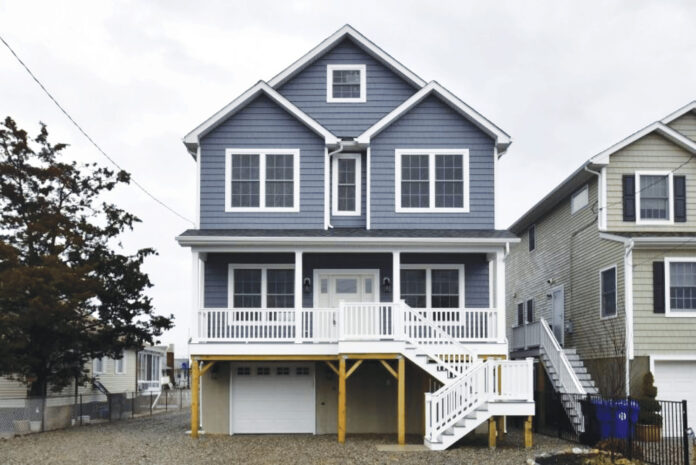Some jurisdictions put up a lot of roadblocks for modular construction. This longtime modular builder has learned to get around them
by Charlie Wardell
- This builder hired two staffers just to deal with New Jersey building authorities
- Approvals take less time Florida despite tougher code requirements
- Electronic permitting and private inspectors make the difference
Modular builders have long griped about building and zoning departments. They say that some jurisdictions create an uneven playing field between modular and conventional stick builders, and that some inspectors put unnecessary roadblocks in front of modular projects.
Of course, this reality varies across the country. In some states and counties, approvals can be relatively hassle-free; in others they can be a nightmare. Things can also change over time. Some jurisdictions with reputations for anti-modular biases 10 years ago may have improved, while others haven’t.
Modular builder Anthony Zarrilli has operated in both types of environments. He builds dozens of custom modular homes every year on the New Jersey shore, with prices ranging from $550,000 to $2.5 million plus. A New Jersey native, he has been in business there for 40 years, including 27 years building with modular. Recently, however, he started building in the Florida Keys.
To hear him talk, the two states might as well be different planets. Each offers its own lessons.
Passing the Buck
Zarrilli lives and breathes modular construction. He sits on the board of the Modular Home Builders Association, does speaking engagements around the country and has won dozens of awards.
He calls it “a fantastic way to build with lots of design options and fast completion times.” But he adds that total project time — from permit application to when the builder turns the keys over to the homeowner — will depend on local permitting and inspection processes.
He calls New Jersey a very challenging environment for modular, thanks to a lack of knowledge by township officials. “Most are not knowledgeable about modular, and they almost always send permit applications back to us for further explanation,” he says.
One reason is the size of the plan sets. A stick-build home might have eight pages of plans while an equally-sized modular has 140. A lot of inspectors don’t want to scrutinize big plan sets and see potential risk hiding in all of those details. “Some inspectors insist that we walk them through each plan.”
The lack of knowledge about modular also leads to a good amount of buck-passing. “No one wants to be accountable; they want someone else’s signature on everything,” he says.
Although he has tried educating local officials about modular, he finds many unwilling to learn. So he has staffed his company accordingly.
“I need two full-time people on staff who mostly compile and submit permits, and answer questions,” he says. “They follow up daily with all townships, and when the township wants something they send it over in a matter of hours.” If he were site-building the same number of homes each year he believes he would need only one employee for this job.
Despite these hassles, Zarrilli still considers modular the best way to build. His company has also built conventional homes, and calculates that modular saves customers between 13 and 23%. “Even with the hoops we have to jump through, modular homes get completed faster and are better built.”
At the same time, he cautions that bureaucratic delays can make it very difficult for a small builder to break into modular. In fact, the only reason he is able to absorb those delays is his volume. “If I were only building a couple of homes per year and each one was delayed for months, I would have no cash flow during that time,” he says.
He believes an electronic approval process would go a long way toward making things less expensive, more streamlined, and more friendly to small builders. “The townships take a process that should require a week or so and stretch it out for months,” he says. “It takes longer to go through permitting than it does to build the house and complete it.”
In fact, Zarrilli believes that he could grow his annual volume by about 30% if local townships implemented such a system.
Keys to Growth
The desire for growth is why Zarrilli decided to expand operations to Florida — specifically, to the Florida Keys — in 2016. He has three homes planned there over the next year.
Code requirements in the Keys are more stringent than those in New Jersey, with increased risk from hurricanes and storm surges. Nevertheless, permitting is fast and relatively hassle-free.
The area where he builds in Florida accepts electronic plan submissions. Plan reviews and site inspections are done by third-party engineering companies. “The ability to hire a private engineer for reviews and inspections speeds up the project timetable by weeks and sometimes months,” he says.
The advantage of using private companies is that they have a different view of risk than bureaucrats. “They want to make sure homes are built to code,” he says of the engineering firms he works with in Florida. “But they also need to make a profit. They don’t drag things out, and they get inspections done in a very timely and efficient manner.”
Say, for instance, that a plan calls for a concrete slab reinforced with steel rebar “or equivalent.” Zarrilli typically uses fiber mesh, which is stronger in that application. That’s enough for approval in Florida, but not in New Jersey. “The township inspectors in New Jersey will demand a letter from an engineer confirming that fiber mesh is acceptable,” he says. It’s a big CYA.
This is just one of a thousand possible examples that together hold up the project timetable. The specific holdups are unpredictable — they vary from town to town and inspector to inspector.
“As successful as I am, if I could build in just one place it would be Florida because they remove all the obstacles that New Jersey throws at us,” says Zarrilli. “That would free me up to focus on business development rather than on the red tape requirements.”
The purpose here is not to single out New Jersey — it just happens to be where Zarrilli does most of his business. Building officials’ openness or unfriendliness to modular construction varies not only between states, but also between towns and counties within states.
The point is that while all builders need to understand the approval and inspection processes in the jurisdictions where they build, that understanding is even more crucial for modular projects.
The advice? Before committing to your first modular project, network with builders already building modular in that jurisdiction. If the jurisdiction is a difficult one and you still want to proceed, make sure that you have enough cash flow from other sources to keep the business afloat if the project gets delayed. And put staff and systems in place to get officials what they need when they need it.
Zarrilli is available to educate builders or code officials on this topic. He can be reached at [email protected]








Hate to be trite, but if it was simple “everyone would be doing it”..building on scattered lots, as grandpa would say.
When ever you decide to checkout and presell in a new political jurisdiction start with.. simply doin your John Doe home work. In NEPA-NCPA for instance.. its a good idea to take the time to get to know personally a commissioner or two and particully the roadmaster there just for starters.
Then of course with the possible need to do even one lot minor land development approval… start first with some basic downhome PR.. Remember all jurisdictions are guaranteed to have a few NIMBYs.
Give me a shout if you like.. as I too have “been there as in 20 states and 2 provinces. Thoughfully, Bill Hart
Sometime it is smooth when he gets there (Florida Keys specifically but all of Florida generally) because other builders/manufacturers paved the way for him for the previous 30 plus years. Also Florida is much more conducive to “freedom” than where he is used to working. At least government tries to get out of the way in Florida (still a problem but better than that area of the country…).